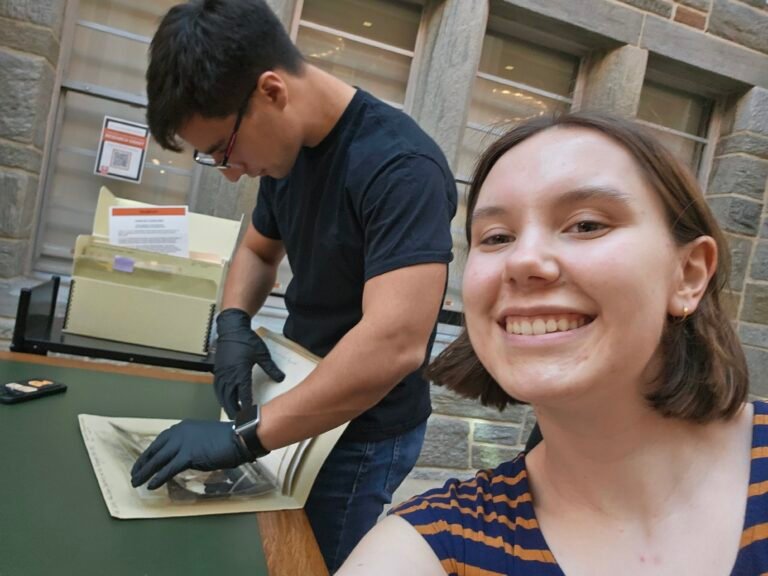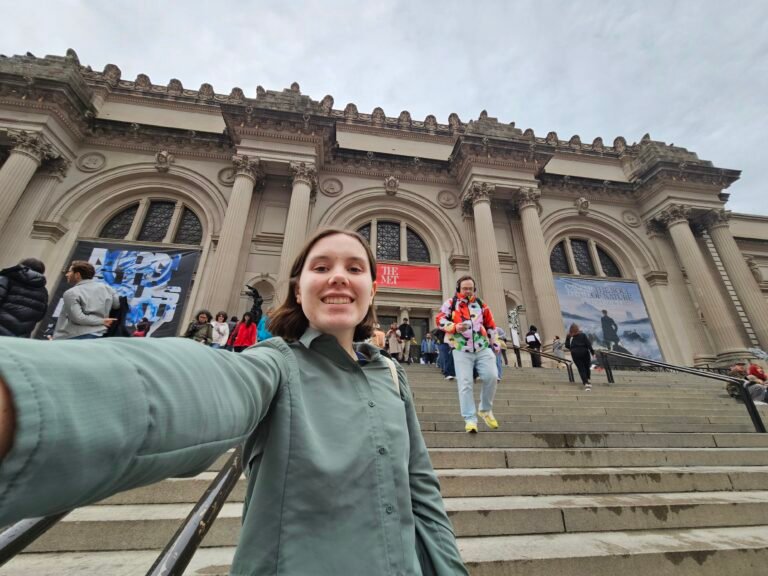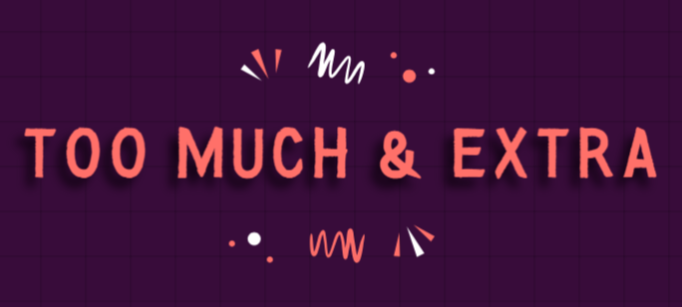

Starbucks & Sociolinguistic Rants
Hola a todos y todas…
What a few weeks it’s been. I write to you from the hallowed halls of the Princeton Starbucks, attempting to finesse the course registration system using their questionable WiFi. Why? Because I really want to take the Spanish class about the origins of the language next semester, and I really don’t want to end up in a lab at 11:00 p.m. I’m chasing dreams here, not sleep deprivation.
I can’t believe I only have one week of classes left in my freshman year. Three weeks between me and the plane to Spain. Between me and that sweet, sweet Iberian sun stand:
One in-person exam
Two take-home exams
One final paper
One website
One computer science project where I identify stars (because nothing says “liberal arts” like astrophysics and CSS in the same breath)
The bright side? The paper draft is done. And let’s face it—I could build a website in my sleep… On a flip phone.
Now, I know I owe you all a nice reflective end-of-year emotional spiral, but I’m saving that gem for when I arrive at the airport three hours early and need something to distract me from the $19 bottles of water. So for now, let’s talk Spain prep.
The past few weeks have been a whirlwind of logistical fun: yet another mandatory Canvas course on how not to get robbed abroad, a seminar about (surprise!) also not getting robbed, and multiple warnings that “911 is not universal” and “alcohol + international travel = chaos squared.” Very educational. It’s become increasingly clear to me why many people skip studying abroad altogether: it’s not the fear—it’s the paperwork.
Between the CIEE billing chaos (shoutout to the fourth email I sent this week), the never-ending prep work, a Spanish placement test (after 8+ years of Spanish… seriously?), and readings I still haven’t done—yeah, I’m thriving.
Lately, it feels like I’ve been eating Spanish. Breathing Spanish. Dreaming in subjunctive. From prepping a 50-slide monstrosity with my partner, to digging through original photos of Fidel Castro in Special Collections, to making a website, to researching my writing seminar paper (where I somehow ended up comparing Franco’s dictatorship rhetoric to the Real Academia Española’s war on inclusive language—don’t ask), it’s been a lot.
Oh, and that research? It almost sent me to Washington, D.C. in a frenzy to find the right historical newspapers. I ended up reading through over 150 of them. Yes, that is a humblebrag. I also made a spontaneous pilgrimage to the Met just to see some Goya and Spanish art, because I realized I’d never been to a museum that wasn’t geared toward children. Needed some American reference points before I go full-on culture mode in Spain.
But honestly? I’m having a blast. There’s a certain smug satisfaction that comes from someone looking at you and going, “Wait… you’re doing all this in Spanish?” and you just nod like, sí, obvio. Even my professor and the Spanish Studies librarian were impressed. And no, I’m not perfect—some of those 1950s newspapers had me praying to Google Translate—but I’ve come a long way since my high school days of awkwardly citing English sources for Spanish presentations.
My partner for the 50-slide presentation (who, for once, is actually excited to help?? A miracle!) is from Miami, so he’s surrounded by Spanish all the time. He asked me, “Delia, when our professor says ‘subjunctive,’ what do you think of?” So naturally, I pulled out the giant mental flowchart I’ve built over the years with all the tiempos and modos. His response? “No one talks like that.” Fair. But hey, research language and real-life language are two different beasts—and I love dissecting both.
That’s what I love about Spanish here at Princeton. Not the “yo hablo, tú hablas” nonsense. I mean a full-blown, scientific, sociolinguistic deep dive into how language builds and breaks meaning. I know, I know—that sentence sounds like I swallowed a thesaurus, but bear with me.
As I’ve been researching, it’s become clear that inclusive language isn’t just a feminist issue. It’s a human one. Coming from a conservative area and now studying in a more progressive environment, I’ve seen both sides care about freedom and liberty. But what if we’re not as free as we think?
Let’s be real: social media manipulates us. It gets us to buy stuff, shows us only opinions we agree with, or—better yet—deliberately shows us things that make us mad, because anger = engagement = profit. It’s not a tool for connection; it’s a tool for control.
Language works the same way. You grow up with it, thinking it’s neutral, but it’s not. It’s shaped. Biased. Historical. I mean, take the word “mistress”—literally the feminine form of “master.” One means powerful; the other, scandalous. How does that happen? Society happens.
And don’t even get me started on gendered insults. There are so many more for women than for men. (I know. Shocking!)
I’m not saying I’ve solved feminism. But I am saying that the way language has been weaponized and distorted is something we should all care about—regardless of political leaning. Because when you lose control over language, you lose control over thought. And when you lose control over thought… well, that’s how we end up thinking diet soda is poison and animals at the zoo are all “he.”
Anyway, I’ve probably alienated half the Internet with this feminist tangent, but I stand by it. Language is power. And someone’s always trying to control it.
Okay, off to go click refresh on my course registration tab and finish upanother paper.
Nos vemos el próximo,
Delia

